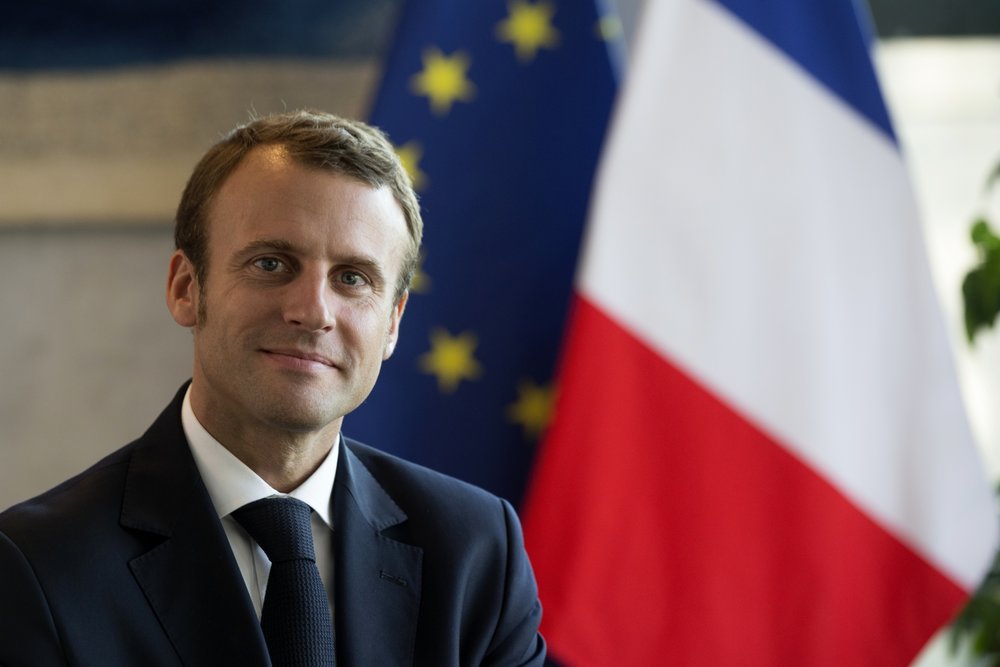France’s extraordinary election

Sixty years after the signing of the Treaty of Rome, France is poised to hold an election that could make or break the European Union.
A victory for the pro-EU independent centrist Emmanuel Macron could be a positive turning point, with France rejecting populism and deepening its connections with Germany. If, however, French voters hand the presidency to the far-right National Front’s Marine Le Pen – who was, tellingly, just warmly received by Vladimir Putin in Moscow – the long European project will be finished.
Clearly, this is no ordinary French election. With the EU’s survival on the line, the stakes are higher than in any election in the history of the Fifth Republic. So, does France’s nationalist, xenophobic right have a real chance of coming to power?
To be sure, the National Front is well established in French political life. Le Pen’s father, Jean-Marie Le Pen, founded the party in 1972, and led it until 2011, when his daughter took over. But its electoral success has so far been limited. While Jean-Marie made it to the second-round runoff in 2002, he ended up losing badly when the center and the left united behind Jacques Chirac.
Like her father, Marine Le Pen is likely to make it to the second round in May; indeed, polls have her winning the most votes in the first round. Many remain confident that she will be defeated in the runoff: Macron is projected to win 63% of the vote in a head-to-head contest against Le Pen. But populist victories in 2016 – particularly the Brexit vote in the United Kingdom and the election of Donald Trump as U.S. president – have shown that the unthinkable can happen.
In fact, the old French proverb, “never two without three,” may seem to indicate that, after those two votes, a Le Pen victory is all but inevitable. Then again, maybe France will be the third electoral loss for extreme-right candidates, after those in Austria and the Netherlands, providing definitive proof that the populist tide can be resisted.
Exceptional circumstances do sometimes favor the emergence of exceptional personalities, as in the 1930s – a tragic decade to which today’s political hysteria has often been likened. But, like the proverbial “rule of three,” the results can be negative or positive. Just as U.S. President Franklin D. Roosevelt emerged as a ray of hope during the worst economic crisis in America’s history, Macron is spreading optimism among a French public disillusioned by a combination of violence, mediocrity, corruption scandals, and ideological confusion.
Macron’s wife jokes that he takes himself for Joan of Arc, the French peasant who saved the country from the British in the Middle Ages. Physically, Macron evokes more the young general, Napoleon Bonaparte, during his first campaign in Italy. Some see in Macron a romantic figure straight out of a Stendhal novel, a modern Fabrice del Dongo, who decides not to be a mere spectator of the world, but to act on it. He advances his mission through a combination of youthful energy, self-confidence, political cunning, technocratic competence, and a sense of moderation.
Macron embodies a sea change in French electoral politics: the erosion of the traditional cleavage between right and left. He is representing his own centrist movement (En Marche !). No independent has ever won the French presidency, but, again, this is no ordinary election.
Rejection of traditional parties
In fact, neither of the two main parties – the Socialists and the Conservatives (Les Republicains, as they now call themselves) – is likely even to reach the election’s second round. This rejection of traditional parties echoes the rejection of Socialist President François Hollande, whose popularity sank so low (to just 4% at one point) that he opted not to seek another term, a first in the Fifth Republic’s history. It is also reflected in the risk of substantial voter abstention, unusual for a country that takes presidential elections very seriously.
Many French have perceived this election as a kind of eternal reality-television show. It may be fascinating, but there is little confidence that the myriad issues that are shaping it, from unemployment to terrorism and security to retirement benefits to the moralization of political life, will be resolved. (Here lies another difference from previous elections, which were largely shaped by one or two major issues.)
Like Dongo – or Macron – the French people now will have their chance to go from spectators to autonomous actors. They can elect their candidate of hope, like Americans did in 2008, when they chose Barack Obama. Or they can elect their candidate of fear, like Americans did in 2016, when they chose Donald Trump. In either case, the effects of their choice – like the choices of their American counterparts – will be felt by countless others.
Of course, France is not America; it is, for one thing, less strategically important to the world. But France is strategically vital to the EU. And, in a sense, the composed and politically savvy Le Pen may be even more dangerous than the erratic political novice currently occupying the White House. That is why much of the world – at least the democratic part of it – is watching this most unusual of French elections unfold with bated breath.
(Source: progject-syndicat.org)
Leave a Comment